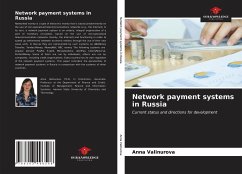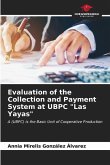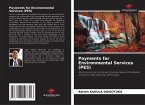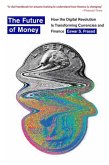Networked money is a type of electronic money that is based predominantly on the use of non-specialised telecommunications networks (e.g., the Internet). In its turn, a network payment system is an orderly, integral organisation of a part of monetary circulation, based on the use of non-specialised telecommunication networks (mainly, the Internet) and functioning in order to speed up settlements between economic entities through the use of their own value units. In Russia they are represented by such systems as WebMoney Transfer, Yandex.Money, MoneyMail, RBC money. The following systems are popular abroad: PayPal, E-gold, Moneybookers, AlertPay, LibertyReserve, PerfectMoney. Some of them are run by individuals; others are run by companies, including credit organisations. Every country has its own regulation of the network payment systems. This paper considers the peculiarities of network payment systems in Russia in comparison with the systems of other countries.
Bitte wählen Sie Ihr Anliegen aus.
Rechnungen
Retourenschein anfordern
Bestellstatus
Storno








